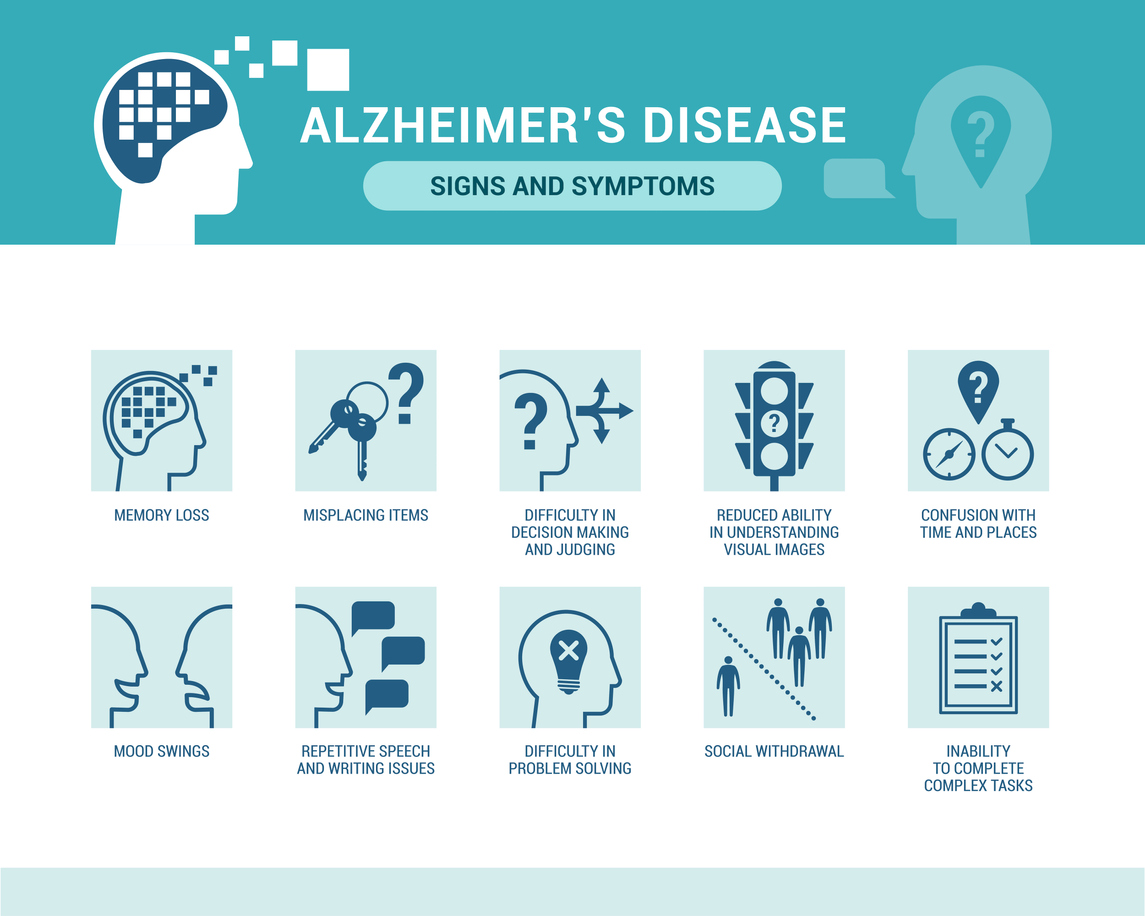Alzheimer’s disease typically progresses slowly in three general stages: early, middle, and late. Since the stages of Alzheimer’s disease affect people in different ways, each person may experience symptoms – or progress through the stages – differently. The stages below provide an overall idea of how abilities change once symptoms appear and should only be used as a general guide. (Dementia is a general term to describe the symptoms of mental decline that accompany Alzheimer’s and other brain diseases.)
Early Stage
A person may still function independently but may feel as if he or she is having memory lapses. Symptoms may not be widely apparent, but family and friends may notice changes.
- Difficulty coming up with the right word or name.
- Trouble remembering names when introduced to new people.
- Having difficulty performing tasks in social or work settings.
- Forgetting material that was just read.
- Losing or misplacing a valuable object.
- Experiencing increased trouble with planning or organizing.
Middle Stage
This is the longest state and where symptoms become more pronounced. The person may confuse words, get angry, or act in unexpected ways.
- Feeling moody or withdrawn, especially in social or mentally challenging situations.
- Being unable to recall personal history or events.
- Experiencing confusion about where they are, the season, or what day it is.
- Having trouble controlling their bladder or bowels.
- Changes in sleep patterns such as sleeping during the day and being restless at night.
- Demonstrating personality and behavioral changes.
Late Stage
In the final stage, dementia symptoms are severe. As memory and cognitive skills continue to worsen, significant personality changes may take place and individuals need extensive care.
- Requiring around the clock assistance with personal care.
- Losing awareness of recent experiences as well as their surroundings.
- Changing physical abilities such as walking, sitting, and eventually swallowing.
- Becoming vulnerable to infections, especially pneumonia.
- Having difficulty communicating.
- Losing bowel and bladder function.
Source: Alzheimer’s Stages – Early, Middle, Late Dementia Symptoms | alz.org



